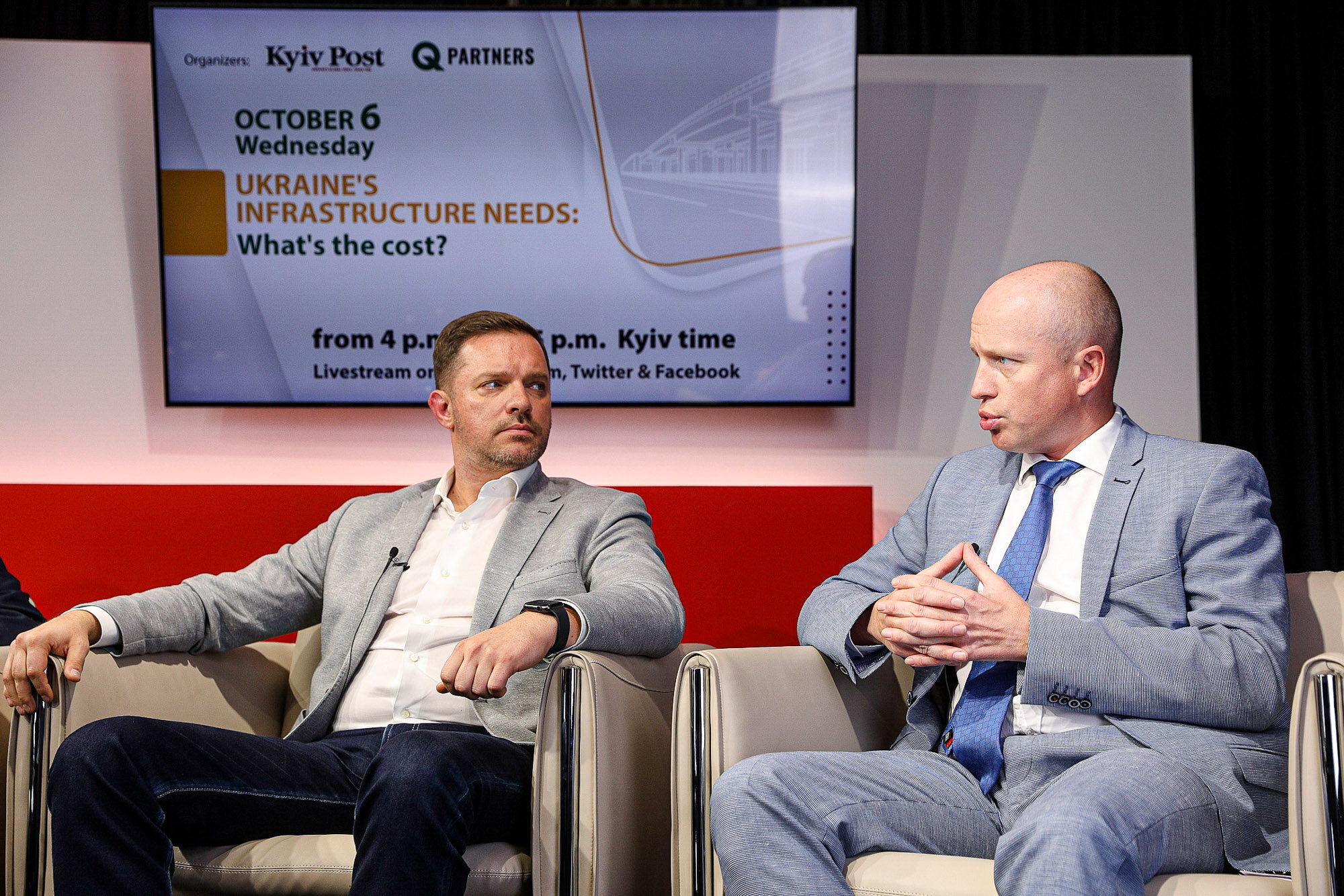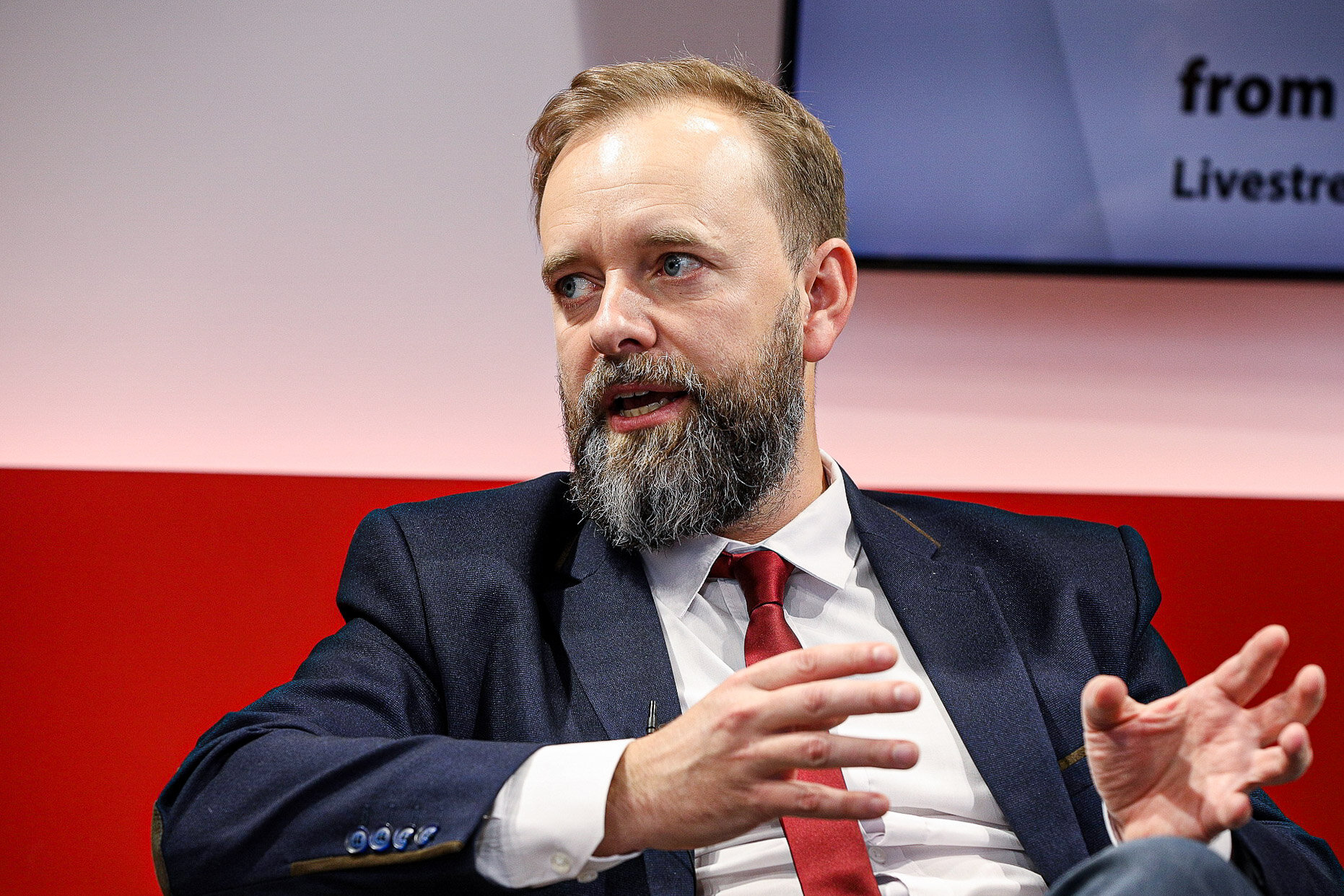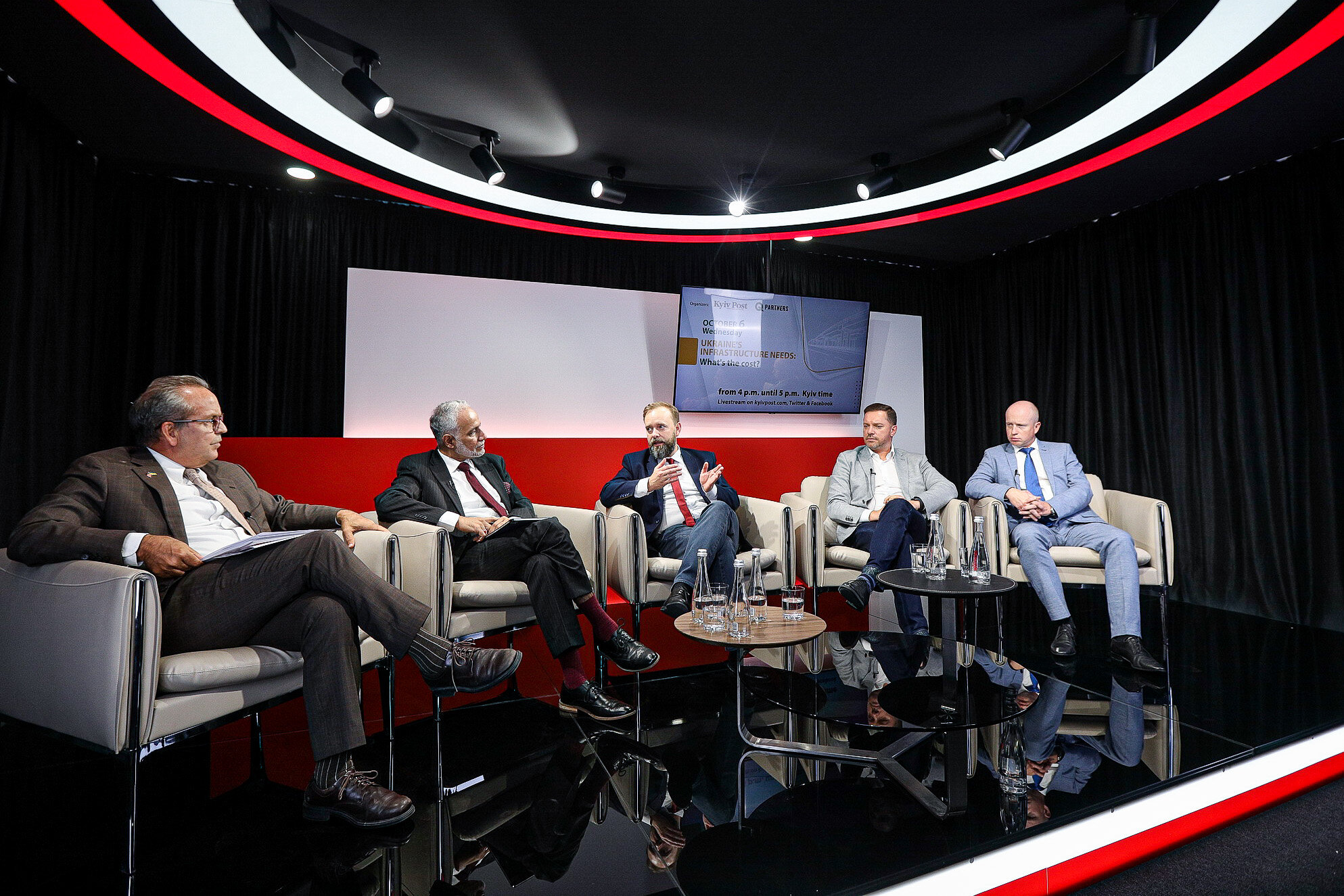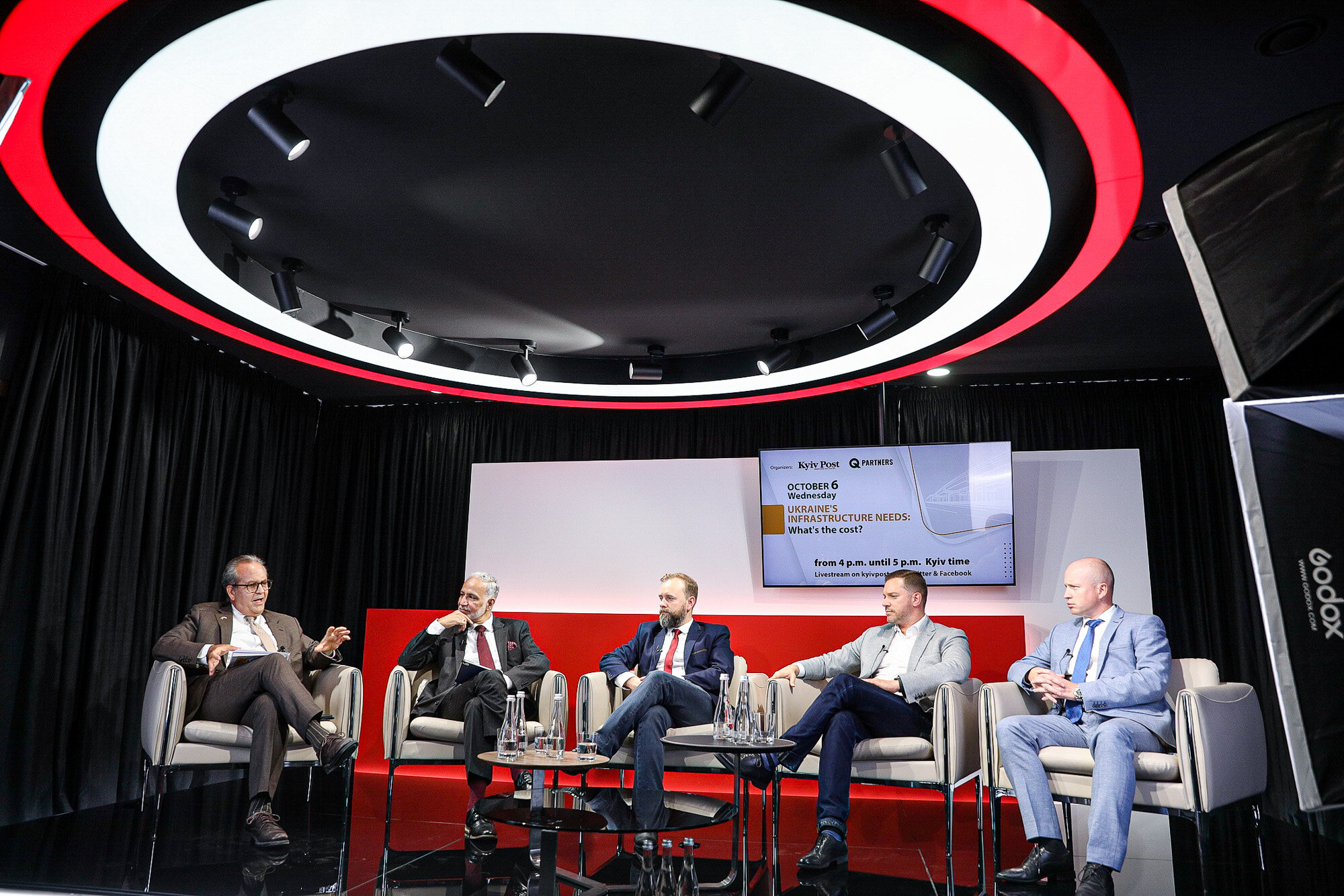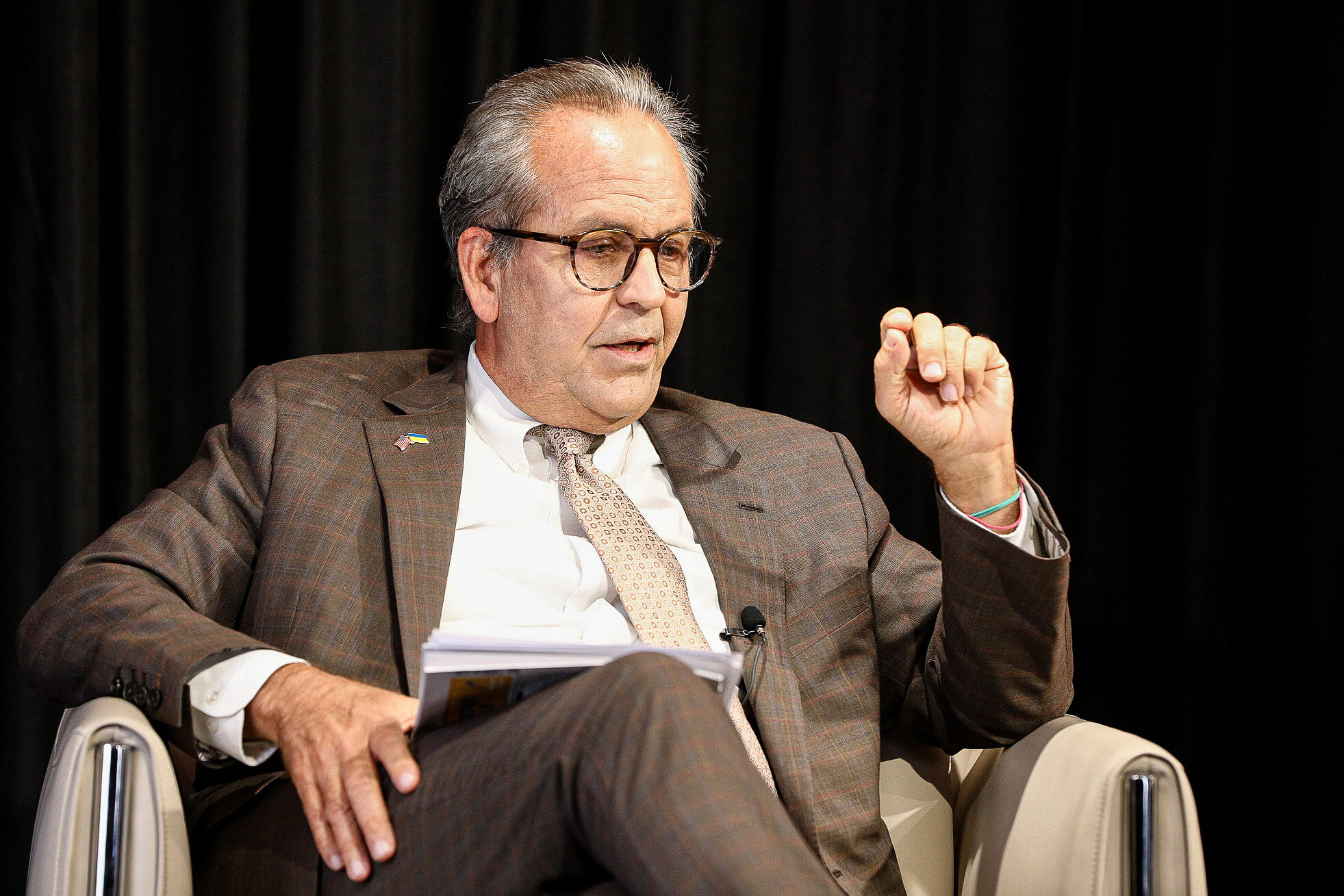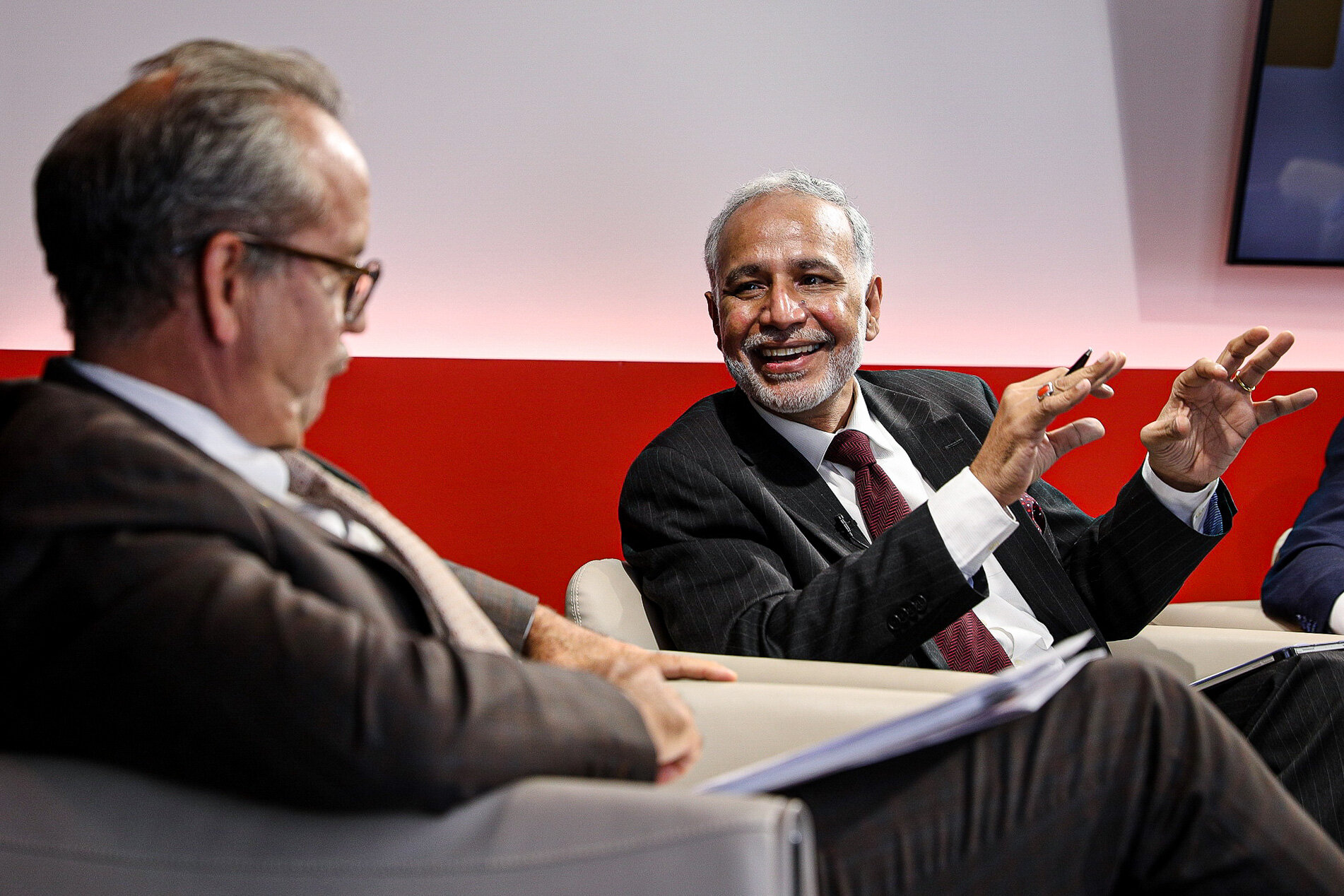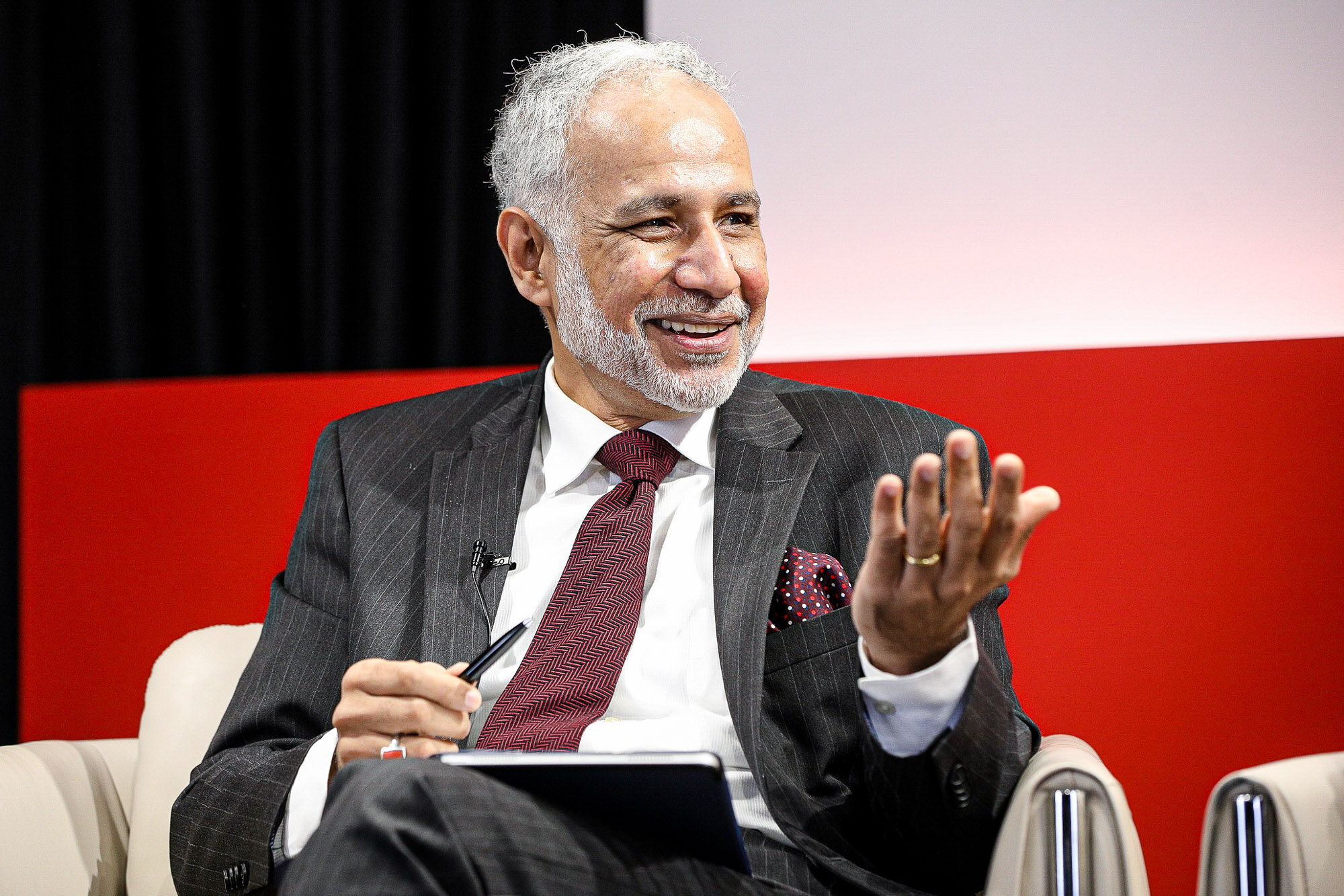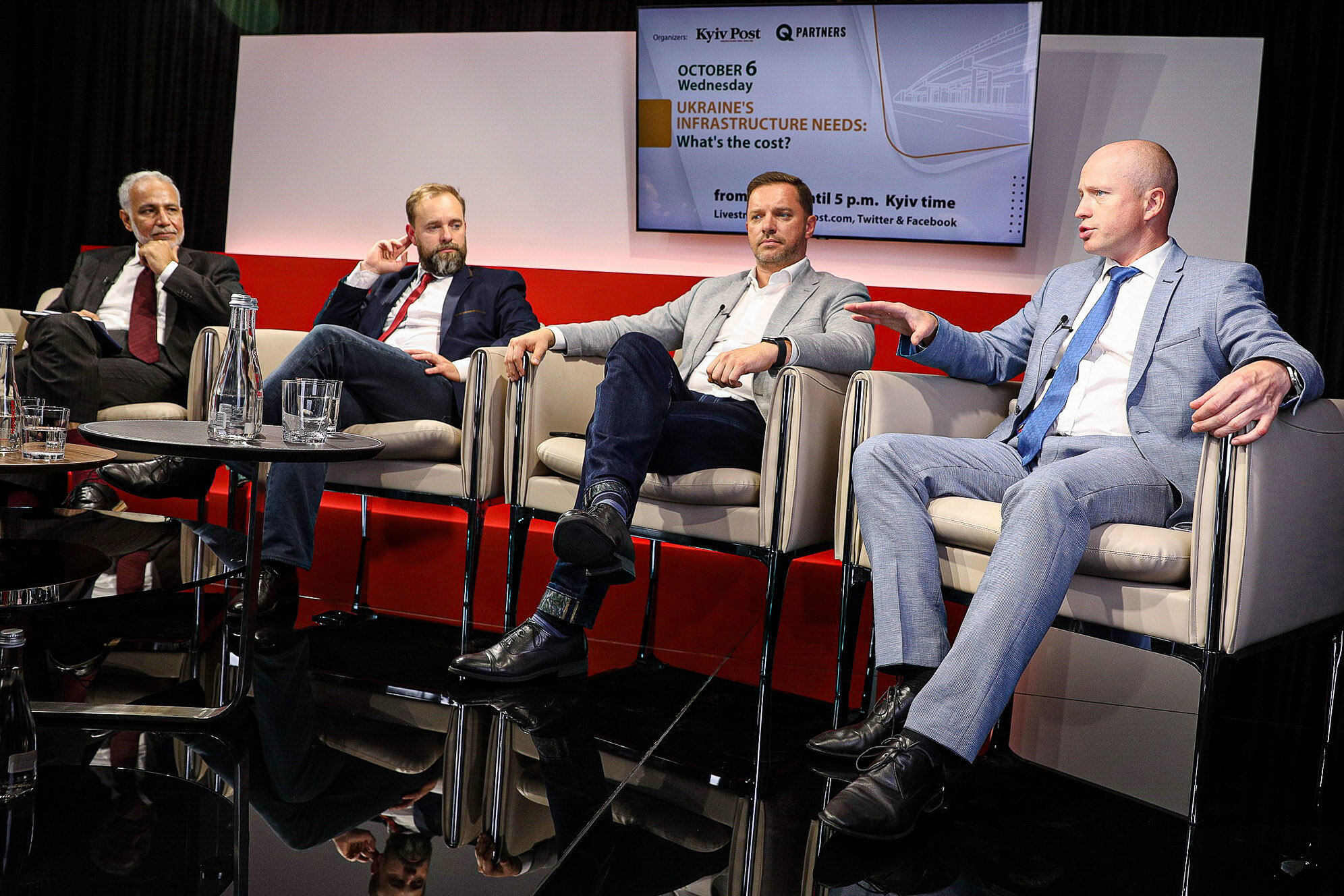Ukraine needs between $10 and $12 billion a year of infrastructure spending, but its government is only providing $1.5 billion.
Arup Banerji, the World Bank’s regional country director for Eastern Europe, commented on Ukraine’s lack of infrastructure spending during the webinar “Ukraine’s Infrastructure Needs: What’s the Cost?” held in the Kyiv Post’s studio on Oct. 6.
Banerji and the other panelists concurred that more needed to be done to attract private investors into Ukrainian infrastructure to cover the necessary investment that the government is not making.
“It is fundamental to Ukraine’s future prospects to get infrastructure right and to invest adequately and efficiently in infrastructure,” Banerji said, emphasizing the need for better maintenance of existing networks.
He also pointed out that Ukraine’s level of public investment was far too low at 16% of its gross domestic product (GDP). By comparison, the average sub-Saharan African country invests 21% of its GDP, he said.
Watch the Oct. 6, 2021, Kyiv Post webinar “Ukraine’s Infrastructure Needs: What’s The Cost?” in partnership with Q Partners.
Large-scale privatization
The State Property Fund, responsible for managing public assets, intends to privatize around 3,000 of the 3,600 enterprises currently under its control, said Taras Yeleyko, the deputy chairman of the Fund.
For the first time in Ukraine’s history, three state-owned seaports will be put up for auction in 2021: Ust-Dunaysk, Bilhorod-Dnistrovsky and Skadovsk.
“The state understands that, with big seaports, we can’t relinquish government control in any way,” said Yeleyko. “With small regional ports, we can make it a trial, see the results and then decide.”
Often, state-owned assets entail semi-abandoned buildings and huge unpaid tax bills, Yeleyko said. “Unfortunately, often these enterprises don’t even pay their land taxes.”
Yeleyko offered a positive example of infrastructure privatization, such as Kyiv’s Central Bus Station.
In 2020, the station, which was in a dilapidated state, was sold to a private owner, who over the course of a year pumped $3.8 million into its refurbishment.
“As far as I know, they’ve already attracted three new bus operators to the central station,” Yeleyko said.
Yurii Vaskov, deputy minister of Infrastructure, said the state should be responsible only for strategic assets. The government wants to privatize 12 state-owned stevedoring companies out of 13 over the next three years, he said.
“All the hinterland, such as stevedoring companies, machinery and warehouses, should be privatized,” he said. The vast majority of this privatization is underway, Vaskov added.
But Dmytro Martynenko, managing partner at Q Partners investment fund, emphasized that investors required a better rule of law environment to invest in Ukrainian infrastructure.
“We need to know that the rules are transparent and equal,” he said.
Concessions
However, Martynenko also had some good news: he said that the new law on concessions opened many new investment opportunities.
A concession is an agreement to let a private firm take over the balance sheet of a state-owned asset and run it as a private enterprise for an agreed period. However, the state remains the owner of the asset.
Martynenko said that in the modern aviation industry, concessions were the only realistic way to run public-private airport partnerships.
“Unless you have a concession, it’s almost impossible to attract financing.”
According to Martynenko, increased investment into infrastructure helps expand connections with Ukraine’s western neighbors.
“One of Ukraine’s biggest advantages is its location,” he said, highlighting the country’s potential as a gateway to Europe.
The infrastructure ministry is also seeking to make inland waterways a more practical transport solution.
From Jan. 1, 2022, lock operation fees and inland port dues will be waived to lighten the load on the creaking rolling stock of state rail operator Ukrzaliznytsia.
Long-running railway issue
Panelists also addressed the perpetually thorny issue of Ukrzaliznytsia, which is currently $1.4 billion in debt and has had six different CEOs in two years.
Banerji hopes that a railway law, which recently passed its first reading in Parliament, would be implemented successfully and unbundle Ukrzaliznytsia into separate cargo and passenger entities.
Such a move would align Ukrzaliznytsia with European rules, and make the subsidies received by the passenger transportation service far more transparent. However, it would also mean that passenger trains will have to be subsidized directly from the state budget if ticket prices are to remain stable.
“Right now, railways contribute 4% of Ukraine’s gross domestic product,” he said, adding that this figure will only increase as the Green Deal is implemented.
At present, over 9,000 of Ukraine’s 19,000 kilometers of railroad need to be refurbished, but in its current financial situation, Ukrzaliznytsia can only repair around 500 kilometers a year.
Meanwhile, Yeleyko highlighted the huge 10-15% annual rate of return on investment which many state-owned infrastructure assets offer, compared to the western European average of 4%. He hopes that this investment incentive will lead to large-scale infrastructure development.
“I believe that in ten years, we will see a totally different country,” he said.
Vlasov expressed hope that Ukraine will one day be in the top ten countries for quality of infrastructure, a table in which it currently holds 69th place.
Banerji concluded by stating that infrastructure improvements should not only be focused on the convenience of urban elites, but also of small farmers in central Ukraine.
“They should have the logistical opportunity to export, grow, and pass on a legacy to their community and their families.”



